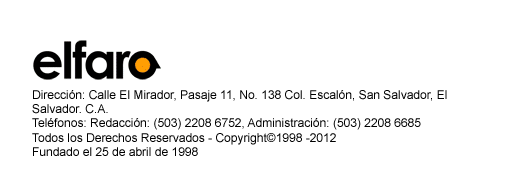SECOND DEPORTATIONS WORKING GROUP MEETING: GOES DELEGATION TO DISCUSS EXPEDITED DEPORTATIONS
Publicado el 24 de Mayo de 2011
id: 43592
date: 10/25/2005 15:06
refid: 05SANSALVADOR2904
origin: Embassy San Salvador
classification: CONFIDENTIAL
destination:
header:
This record is a partial extract of the original cable. The full text of the original cable is not available.
----------------- header ends ----------------
C O N F I D E N T I A L SECTION 01 OF 02 SAN SALVADOR 002904
SIPDIS
DHS FOR U/S RANDY BEARDSWORTH
E.O. 12958: DECL: 10/24/2015
TAGS: PGOV, PINS, PREF, PREL, PTER, KCRM, KJUS, ES, ACCELERATED DEPORTATION
SUBJECT: SECOND DEPORTATIONS WORKING GROUP MEETING: GOES DELEGATION TO DISCUSS EXPEDITED DEPORTATIONS
Classified By: DCM Michael Butler for reasons
1.4 (b) & (d)
1. (C) SUMMARY: On October 21, the joint Embassy-GOES
Deportations Working Group met to review issues to be raised
by a GOES delegation traveling to Washington to discuss
accelerated deportations the week of October 24. The
delegation will consist of Governance Vice-Minister Rodrigo
Avila, Vice-FoMin Margarita Escobar, and Migration Director
Jorge Santibanez. During a briefing for Embassy
participants, the GOES team stated that they will propose
that deportees be positioned in two or three locations to
facilitate consular interviews, and that DHS return
non-violent deportees via commercial aviation. The GOES will
also want to discuss sharing biometric fingerprints taken
from violent deportees in the U.S., increasing police
cooperation relative to gangs, and changing current law to
allow for Digital Video Conferencing of presumed Salvadorans.
The GOES reiterated its interest in negotiating bilateral
extradition and prisoner exchange agreements. The GOES is
working to develop a long-term plan for dealing with the
return of its citizens. Despite their overt willingness to
cooperate, however, their subtle commentary and body language
reveal a sense of being overwhelmed by assimilating and
re-settling so many individuals, especially those convicted
of violent crimes in the United States. END SUMMARY.
2. (SBU) A GOES delegation led by Vice-Minister of Governance
Avila will arrive in Washington the week of October 24 to
discuss expedited deportations of Salvadoran nationals
detained by DHS on immigration violations. On Friday,
October 21, Embassy officers (PolCouns, A/CG, DHS, INL) met
with Vice Minister Avila (public security), Vice Minister de
Escobar (MFA-Salvadorans living abroad), and Migration
Director Santiba$ez to discuss the visit. Embassy and GOES
officials focused on immediate, medium-range, and long-term
actions to be taken by the GOES and the USG to decrease the
backlog of deportations.
-------------------
IMMEDIATE ACTIONS
-------------------
3. (C) Detainee Staging Areas: The GOES will propose that
DHS position all Salvadorans to be deported in two or three
locations throughout the United States, preferably in cities
that already have Salvadoran consulates (e.g., Los Angeles,
Houston). The GOES would then allocate more consuls to these
locations to conduct citizenship interviews. The increase in
interviewers and the elimination of travel time to numerous
detention facilities should, in their view, reduce the amount
of time to issue travel documents.
4. (C) Deportation via Commercial Aviation: The GOES
expressed their willingness to cooperate with the deportation
of non-violent, immigration offenders via commercial
aviation. Although the specifics were not discussed, Post
anticipates that the GOES will request advanced notice of
such arrivals (e.g., name, carrier, flight number, arrival
time). The GOES further argues that deportees with serious
criminal records/backgrounds continue to arrive via JPAT
flights, and also request that known gang members, regardless
of the activity that led to their deportation, also be
deported via JPAT flights.
----------------------
MEDIUM-RANGE ACTIONS
----------------------
5. (C) Sharing Fingerprints: Post understands that it is DHS
policy to take biometric fingerprints of all deportees. If
that is the case, the GOES will request that DHS
electronically forward the prints of violent deportees before
they arrive in El Salvador. This request will extend to known
gang members, regardless of the activity that led to their
deportation. This request is part of a larger issue on the
type and format of information provided by DHS to the GOES
relative to violent and gang affiliated deportees.
Separately, Post is exploring methods of assisting the GOES
to take biometric fingerprints of violent deportees once they
arrive at the airport in El Salvador.
6. (C) Police Cooperation: The GOES will ask for greater
police cooperation on gang-related criminal activity. As an
auxiliary to this request, the GOES will raise the
possibility of establishing a Mutual Legal Assistance Treaty
(MLAT). The GOES also continues to press for accelerated
negotiations on bilateral prisoner exchange and extradition
agreements. They are aware that the FBI plans to establish a
Legal Attache in El Salvador and view this as a positive
development.
7. (C) DVC: Under current law, a GOES official must
interview presumed Salvadorans in person to determine if the
GOES will acknowledge their citizenship and issue a travel
document. The GOES is amenable to introducing legislation to
allow for this determination to be made by Digital Video
Conferencing (DVC). They are also considering sending
trained Immigration officials to augment consular staff
charged with conducting these interviews.
------------------
LONG-TERM ACTIONS
------------------
8. (C) The GOES is still developing a long-term approach to
coping with the return of so many of its citizens. The
challenge is daunting. They must create jobs for individuals
who left El Salvador due to a lack of employment. Unable to
adequately address the current gang phenomenon, they must now
find a way to absorb, rehabilitate, and demobilize additional
gang members who may lack any cultural connection with El
Salvador. The GOES may not be able to discuss long-term
actions in detail at this time, but will press for USG
assistance for job training and development programs.
--------
COMMENT
--------
9. (C) Our meeting with our GOES counterparts officials was
very upbeat and positive. They understand the importance of
their visit to Washington, and in general, of their
friendship with the USG. Despite their overt willingness to
cooperate, however, their subtle commentary and body language
reveal a sense of being overwhelmed by assimilating and
re-settling so many individuals, especially those convicted
of violent crimes in the United States. Washington officials
should expect the GOES delegation to elicit sympathy for
their cause, and should be prepared to discuss possible
sources of assistance for GOES initiatives relative to
expedited deportations.
Barclay
=======================CABLE ENDS============================




